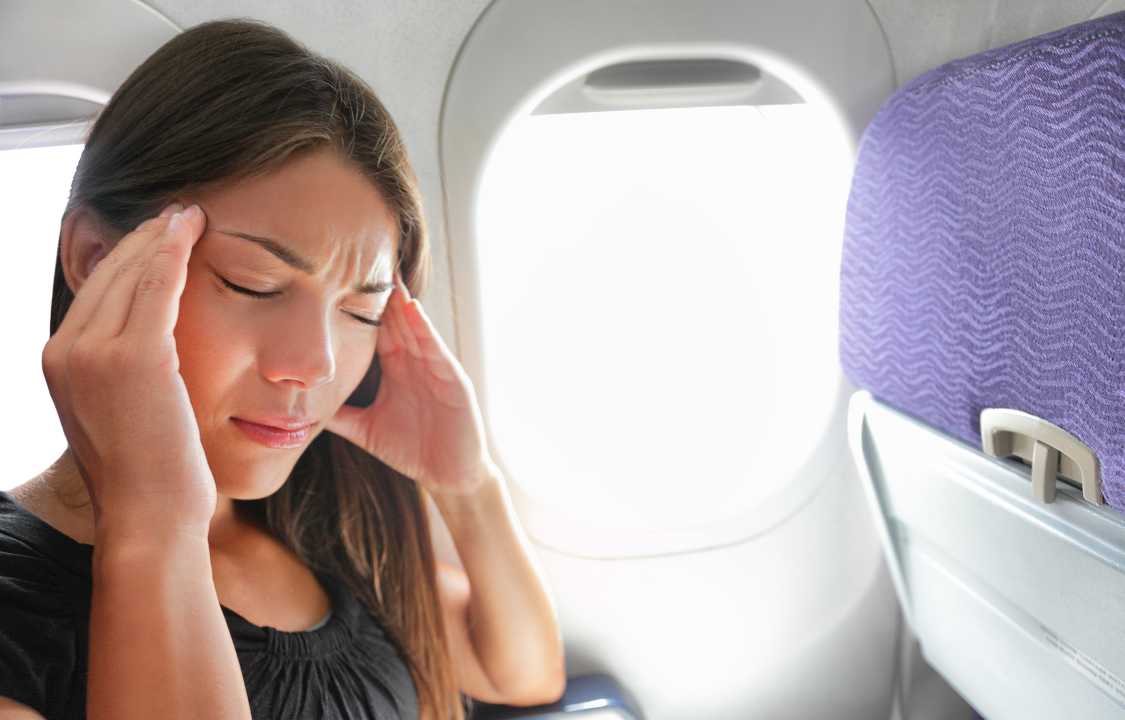For people who get migraines, vacation headaches are all too common—here’s what might be at play.
Reliving cherished vacation memories through a photo album often fills our hearts with nostalgia and joy. However, for some, the mere recollection of a vacation can evoke memories of throbbing migraines, accompanied by neck pain, dizziness, and sound sensitivity. Travel, meant to be a time of relaxation and rejuvenation, can sometimes become the unwitting trigger for debilitating headaches. In this comprehensive exploration, we delve into the multifaceted realm of vacation headaches, uncovering six key reasons behind their occurrence and offering invaluable insights into mitigating their impact on your travels.
Understanding Vacation Headaches: A Closer Look
Vacation headaches, a distressing reality for many, are paradoxical in nature. They often arise precisely when we seek respite from the daily grind, when the stresses of life are seemingly left behind. These headaches can strike at any moment, turning what should be a carefree vacation into an ordeal. To grasp the nuances of vacation headaches, it’s crucial to explore the reasons behind their occurrence.
Six Culprits Behind Vacation Headaches
1. The “Let-Down Headache”: You’ve finally settled into a tranquil beach chair, or perhaps you’re savoring the freedom of a post-college hike, only to be struck by an unexpected migraine. These headaches, known as “let-down headaches,” often occur when stress levels plummet suddenly. Chronic migraine sufferers sometimes find their well-controlled headache frequency disrupted precisely when they let their guard down during vacations. The complex interplay between stress perception and physical reactions contributes to this phenomenon.
- How to Prevent “Let-Down Headaches”: To safeguard against this abrupt spike-and-drop pattern of migraines, proactive stress management is essential. Strategies such as clear communication, adequate sleep, effective time management, and quality time spent with loved ones can help maintain stable stress levels.
2. The Cumulative Stressors: Contrary to the idyllic perception of vacations, they are not always stress-free paradises. From last-minute packing woes to challenging encounters with in-laws, a myriad of stressors can accumulate, both literally and figuratively, causing stress-induced headaches. Staying calm amid these stressors can be challenging but is paramount to headache prevention.
- Strategies for Managing Cumulative Stressors: Incorporating self-care practices into your travel routine can help you maintain emotional equilibrium. Consider listening to guided meditations during travel, scheduling quiet breaks, and practicing deep-breathing exercises to navigate these stressful moments.
3. Disrupted Sleep Patterns: A peaceful slumber is often elusive when you’re away from the comfort of your own bed. Traveling across time zones can disrupt your circadian rhythm, contributing to sleep disturbances and triggering migraines. The use of melatonin supplements may offer relief by regulating your body’s internal clock and alleviating headache intensity.
- Tips for Better Sleep While Traveling: Prioritize healthy sleep hygiene by avoiding electronic devices before bedtime, ensuring a cool and dark sleeping environment, and adhering to your usual bedtime routine as closely as possible.
4. Dehydration Dilemmas: Adequate hydration is paramount in warding off headaches. Even a minor body water loss of 1 to 2% can elevate your headache risk. Dehydration during travel can result from the low humidity in airplane cabins or a departure from your regular hydration habits. Alcohol consumption, common during vacations, compounds the problem by acting as a diuretic.
- How to Stay Hydrated on Vacation: Counter dehydration by consuming electrolytes when feeling parched, drinking ample water in hot climates, and carrying a refillable water bottle. When imbibing in alcoholic beverages, ensure a balance by also consuming non-alcoholic fluids.
5. Dietary Dilemmas: For some, headaches may be triggered by specific dietary components such as tyramine, nitrates, sulfites, and artificial additives found in aged cheeses, cured meats, pickled foods, and alcohol—ingredients commonly encountered in restaurant dining. Travel can disrupt established dietary routines, making avoidance of headache-triggering foods a challenge.
- Strategies for Dietary Headache Management: Identify and avoid known headache-triggering foods whenever possible. Opt for frequent, smaller meals composed of unprocessed, fresh ingredients. Maintain a consistent caffeine intake and dietary pattern, even when on vacation.
6. Altitude-Induced Headaches: The thrill of ascending winding mountain roads in pursuit of cooler climes and fresher air may, ironically, lead to altitude-induced headaches. Changes in altitude can decrease oxygen supply, causing a condition called hypoxia, wherein the brain receives inadequate oxygen. Even moderate altitude changes can induce discomfort and exacerbate headache frequency and severity.
- Relief Strategies for Altitude Headaches: Descending to lower altitudes, taking ibuprofen, staying well-hydrated, and taking regular breaks can alleviate the discomfort associated with altitude-induced headaches.
In Summation: Navigating Vacation Headaches
While vacations are cherished respites from our daily routines, the very act of straying from these routines can sometimes trigger headaches. Maintaining consistency in daily habits and routines can be your ally in preventing the onset of vacation headaches. As you embark on your next journey, remember that with mindfulness, proactive strategies, and a dash of preparation, you can pave the way for a headache-free travel experience. A vacation should be an opportunity to unwind, rejuvenate, and create beautiful memories—not a source of distress and discomfort.

